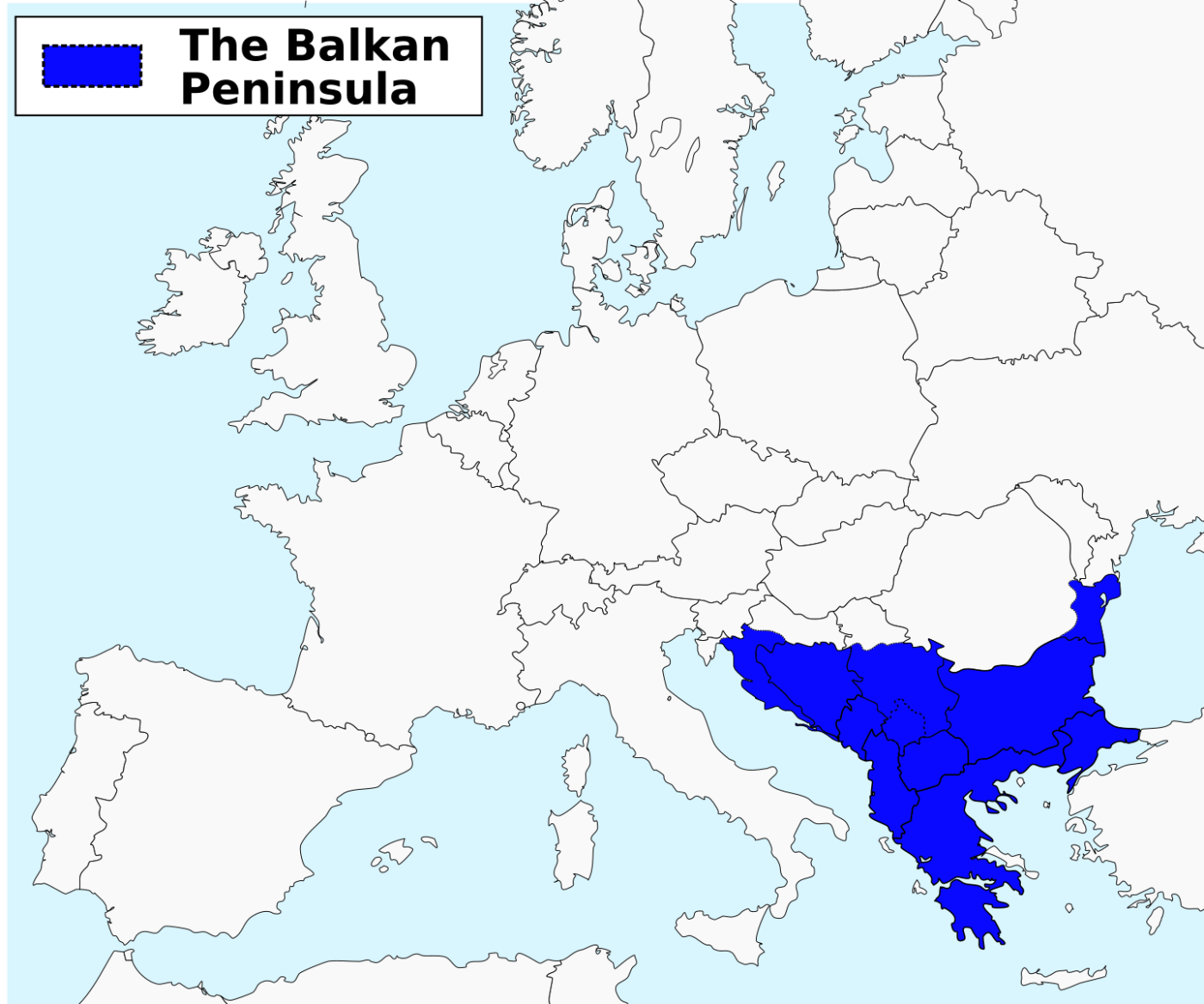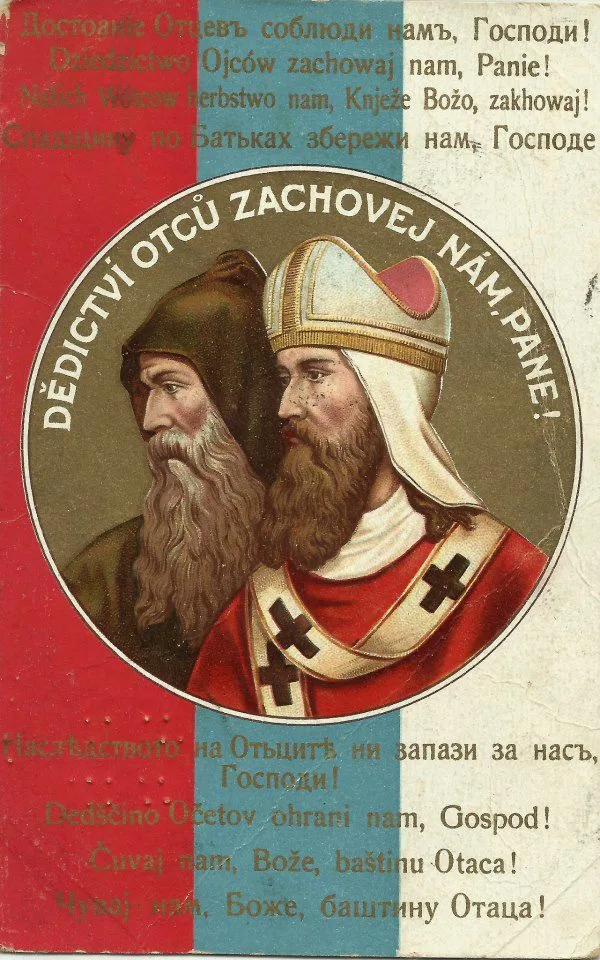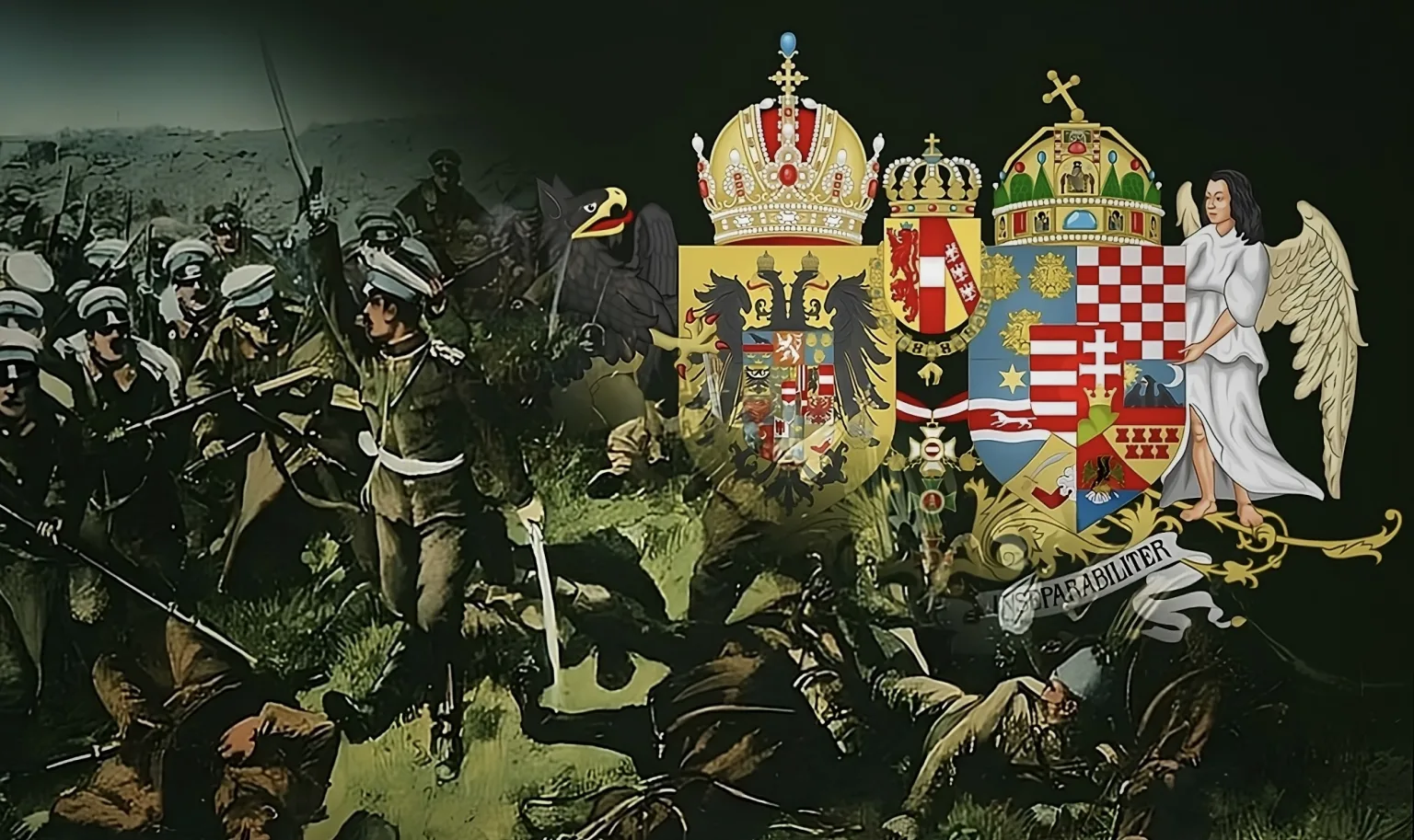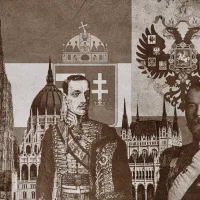The Balkan Wars, which unfolded in the early 20th century, were a series of conflicts that reshaped the map of Southeast Europe. The involvement of Austria-Hungary, a major European power at the time, played a pivotal role in the outcome of these wars. But what if Austria-Hungary had not been involved? This article delves into the complexities of this hypothetical scenario, exploring both the potential benefits and drawbacks of such a significant shift in history.
The Immediate Impact on the Balkans
Without Austria-Hungary’s involvement, the Balkan League, comprising Serbia, Montenegro, Greece, and Bulgaria, might have had a more straightforward path to achieving their objectives against the Ottoman Empire. The absence of Austria-Hungary’s influence could have led to a more unified Balkan front, potentially resulting in a swifter conclusion to the wars.

However, Eastern European sources, suggest that the absence of Austria-Hungary might have intensified rivalries among the Balkan states. Without the external pressure from Austria-Hungary, the Balkan League’s internal tensions, especially between Serbia and Bulgaria, might have erupted sooner, leading to a different outcome in the Second Balkan War.
Broader European Context
Austria-Hungary’s non-involvement would have undoubtedly affected the broader European landscape. The empire’s interests in the Balkans were closely tied to those of Germany and the Ottoman Empire. Without Austria-Hungary’s involvement, Germany might have been less inclined to support its ally’s ambitions in the region, potentially leading to a shift in alliances and power dynamics.
Furthermore, the absence of Austria-Hungary’s influence could have given Russia a more dominant role in supporting its Slavic brethren in the Balkans. This might have strengthened the Pan-Slavic movement, altering the balance of power in Eastern Europe.

Road to World War I
One of the most debated topics among historians is whether Austria-Hungary’s non-involvement in the Balkan Wars would have prevented the outbreak of World War I. The assassination of Archduke Franz Ferdinand in Sarajevo in 1914, which directly led to the war, was deeply rooted in the Balkan conflicts.
Without Austria-Hungary’s involvement in the Balkan Wars, it’s conceivable that tensions in the region might not have escalated to the point of the Archduke’s assassination. This could have potentially delayed or even averted the Great War.
However, the underlying causes of World War I were multifaceted. Even without the Balkan trigger, the intricate web of alliances, militarism, and nationalism might have still led Europe down the path of war.
Economic and Cultural Implications
The Balkans, rich in culture and resources, were of significant economic interest to Austria-Hungary. Without its involvement in the wars, the empire might have missed out on potential economic gains, impacting its stability and prosperity.
Culturally, the absence of Austria-Hungary’s influence could have led to a more pronounced Ottoman or Russian imprint on the Balkans. This might have resulted in a different cultural and religious landscape in the region, affecting everything from art and literature to political ideologies.
Conclusion
The hypothetical scenario of Austria-Hungary not being involved in the Balkan Wars presents a tapestry of possibilities. While it’s tempting to envision a more peaceful Europe, the complexities of the era make it challenging to predict a definitive outcome. What remains certain is the profound impact of the Balkan Wars on the course of European history. By understanding these nuances, we gain a deeper appreciation for the intricate dance of diplomacy, warfare, and culture that shaped the world we know today.
How do you think the absence of Austria-Hungary’s involvement in the Balkan Wars would have changed the course of European history? Comment below!
Contrary reflections:
- Inevitability of Austria-Hungary’s Involvement: It is argued that Austria-Hungary’s involvement in the Balkan Wars was inevitable. Given the empire’s strategic interests and its longstanding rivalry with Russia over influence in the Balkans, this perspective suggests that Austria-Hungary would have found another pretext to intervene, even if not directly in the wars.
- The Balkan Wars as a Minor Catalyst: Some historians emphasize that the Balkan Wars were just one of many catalysts leading up to World War I. Even without the Balkan conflicts, the tensions between major European powers were already at a boiling point, and war was on the horizon.
- The Role of Nationalism: Even without Austria-Hungary’s involvement, the rise of nationalism in the Balkans would have led to internal conflicts among the Balkan League members. The absence of an external threat like Austria-Hungary might have even exacerbated these nationalist sentiments.
- Economic Interests Overstated: While the article suggests significant economic interests of Austria-Hungary in the Balkans, it is argued that the empire’s economic stakes in the region were secondary to its political and strategic interest.
More of → What If? ←
FAQ
1. How would Austria-Hungary’s decision to remain neutral in the Balkan Wars have impacted its ties with Germany?
Austria-Hungary and Germany were part of the Triple Alliance, and their mutual interests were closely intertwined. If Austria-Hungary had chosen not to involve itself in the Balkan Wars, it might have raised questions in Berlin about the empire’s commitment to their shared objectives. This could have led to some diplomatic strain, but the broader alliance would likely have remained intact given their mutual concerns about Russia and France.
2. How would Austria-Hungary’s neutrality in the Balkan Wars have shaped Russia’s Balkan ambitions?
Russia, with its Pan-Slavic ambitions, had a keen interest in the Balkans. Without Austria-Hungary’s involvement, Russia might have seen an opportunity to increase its influence in the region, supporting Slavic nations against the Ottoman Empire. This could have led to a more pronounced Russian presence in Southeast Europe, potentially altering the geopolitical landscape.
3. How might Austria-Hungary’s non-involvement have impacted the Ottoman Empire’s strategy in the Balkan Wars?
Without Austria-Hungary’s involvement, the Ottoman Empire might have adopted a more aggressive stance in the Balkan Wars. The absence of a major European power could have emboldened the Ottomans to reclaim lost territories and reassert their dominance in the region. However, facing a united Balkan League, the empire’s efforts might still have been met with significant resistance.
4. Could Austria-Hungary’s non-involvement have led to a different outcome in the Second Balkan War?
The Second Balkan War was primarily a conflict between members of the Balkan League over territorial disputes. Without Austria-Hungary’s involvement in the preceding conflict, the internal tensions within the Balkan League might have surfaced sooner. While it’s challenging to predict a definitive outcome, the dynamics of the Second Balkan War could have been influenced by the absence of external pressures from Austria-Hungary.
5. How might the cultural and religious landscape of the Balkans have developed differently without Austria-Hungary’s involvement in the wars?
Austria-Hungary, with its diverse cultural and religious makeup, had a significant influence on the regions it engaged with. Without its involvement in the Balkan Wars, the Balkans might have seen a more pronounced influence from either the Ottoman or Russian empires. This could have led to a different cultural blend, with either a stronger Turkish or Russian imprint on the region’s art, literature, and religious practices.
This was a delight to read. You show an impressive grasp on this subject! I specialize about Appliances and you…
i think he was just a crazy guy, a victim of his childhood and enviroment
super interesting 🤔
Loved this article, learned a lot!




Leave a Reply